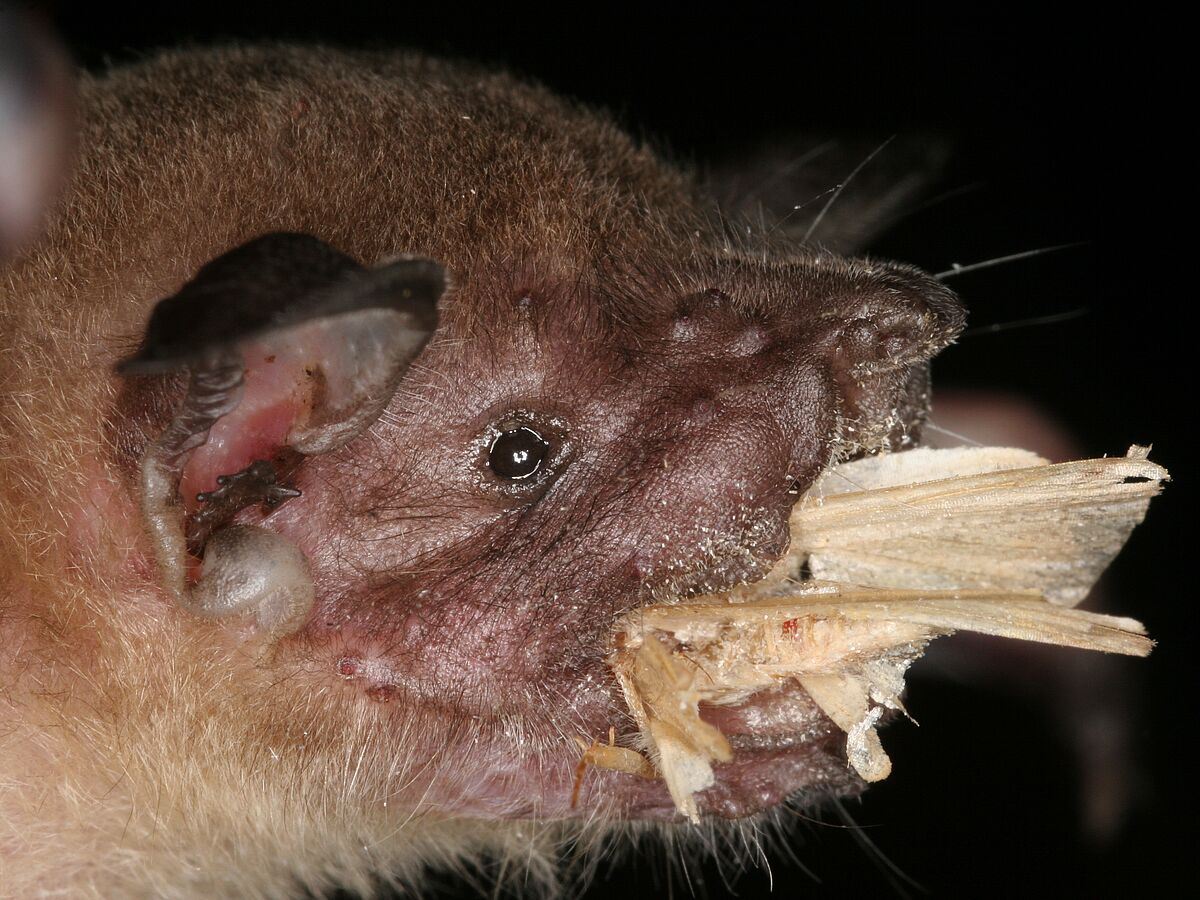Anyone who is healthy has more enthusiasm for reproduction. The same is true even for bats. Male bats with a good immune system are more successful in being selected by females during mate choice and reproduction than their ailing counterparts, as recently highlighted by researchers of the Leibniz Institute for Zoo and Wildlife Research (IZW) in the online scientific journal PLoS ONE.
In male deer and peacocks we know: the more spikes in the antlers and the more eyes on the peacock's tail, the greater the success with fe-males. The "good genes" hypothesis assumes that the attractiveness of males is associated with good genes passed on to offspring.
Now, for one specific version of the good genes hypothesis IZW-scientists found strong support. An IZW-team led by Simone Sommer and Christian Voigt demonstrated for lesser bulldog bats (Noctilio al-biventris) that males with a high variability within the immune genes of the “major histocompatibility complex” (MHC), a gene region crucial for the immune defense against pathogens and parasites, reproduce better and hand on their good genes directly to the offspring. The likely reason for the higher reproductive success: Males with good MHC genes have to invest less energy into the defense against pathogens, particularly parasites.
Tropical bats have been recently identified as a major reservoir for many dangerous pathogens, such as SARS, Ebola or Nipa viruses. Yet, quite often tropical bats seem to remain unaffected by these viruses, even though humans and non-bat wildlife species may develop severe symptoms. The IZW researchers therefore asked whether there is any-thing special about the immune gene constitution of tropical bats, and whether bats have specific evolutionary adaptations to protect them-selves against seemingly dangerous pathogens or parasites.
Genes that code for the immune defense are highly variable and there-fore individuals can substantially vary in the effectiveness of their im-mune defense as this depends on which genes they carry. Using the example of the Lesser Bulldog Bat, the researchers showed that the expression of immune genes influenced the degree of parasitic infesta-tion by ticks and bat flies. Males that suffered severely under parasites possessed unfavorable immune genes. They were also less often repro-ductively successful and therefore did not pass on their “bad genes” to the next generation.
Reproductively active and successful males were parasitized less often and also carried less often the “bad” immune genes. This clearly helped their progeny. “We were amazed to see that the next generation already carried more of the good immune genes than the previous one” says Julia Schad, the first author of the paper. The unfavorable immune genes were less common in the offspring than in the previous genera-tion, helping the offspring to fight off parasites such as ticks and bat flies. The results show that bats may adapt quickly in that already the successor generations substantially benefits from the increased effec-tiveness of the immunogenetic defense against prevailing parasites and pathogens.
Immune genes also affect the odor profile of animals. Female bulldog bats might use olfactory cues to select males as mates which carry the beneficial immune gene constitution , speculates Simone Sommer. In an on-going project, the team investigates whether the odor profile of male bats is related to the variability of their immune genes.
The article is free to read on the PLoS ONE website:
http://dx.plos.org/10.1371/journal.pone.0037101
Information & Photos:
| Leibniz Institute for Zoo and Wildlife Research (IZW) in the Forschungsverbund Berlin e.V. Alfred-Kowalke-Str. 17 10315 Berlin Germany www.izw-berlin.de Prof Dr Simone Sommer PD Dr. Chrisitan Voigt, 0049 30 51 68 517 Steven Seet, 0049 177 857 26 73 |


